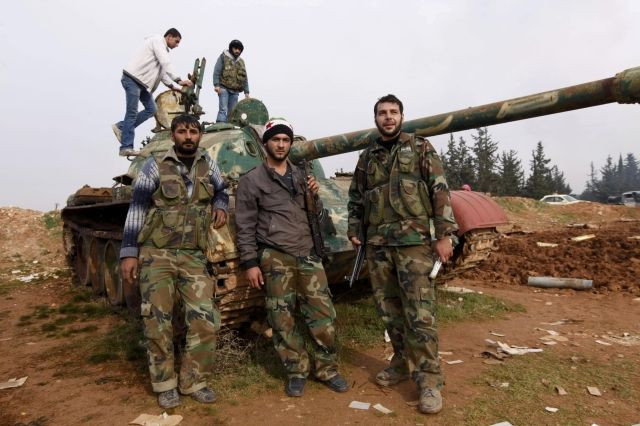Al-Qaeda Threat Looming Large Over Syria As Assad’s Future Looks Grim

As Syrian rebels close in on capital Damascus with the regime forces stretched thin, concerns are now focused on the rise of al-Qaeda’s influence in Syria.
Al-Qaeda's affiliate in Syria, al-Nusra Front, is exploiting a widening sectarian rift between the majority Sunnis and the minority Alawites, who dominate the government of Syria and hold key military positions.
Last week, while formally recognizing the recently formed coalition of Syrian rebels as the “legitimate representative” of the people, President Barack Obama said that the recognition did not mean the U.S. was extending approval to the extremist elements among the rebels.
"Not everybody who's participating on the ground in fighting Assad are people who we are comfortable with," he said. "There are some who, I think, have adopted an extremist agenda, an anti-U.S. agenda, and we are going to make clear to distinguish between those elements."
Earlier, the U.S. State Department had announced that it had classified the al-Nusra Front as a foreign terrorist organization, responsible for nearly 600 attacks since November last year. The group has carried out more than 40 suicide attacks and improvised explosive device operations in major city centers, including Damascus, Aleppo, Hamah, Dara, Homs, Idlib, and Dayr al-Zawr, the State Department said last week.
Al-Nusra is a known collaborator with the Free Syrian Army fighting against the Assad regime, but the State Department has said that al-Nusra is also an alias for al-Qaeda in Syria.
British Prime Minister David Cameron Monday said there was a “strategic” as well as “moral imperative” to act as Syria was “attracting and empowering a new cohort of al-Qaeda-linked extremists,” the BBC reported.
"There is a growing risk on instability spreading to Syria's neighbors, and a risk of drawing regional powers into direct conflict,” Cameron said while addressing his MPs. "My concern is that if we, with others, aren't helping to shape and work with the opposition, it's much more difficult to get the transition we all want to see to a peaceful, democratic Syria that respects the rights of minorities."
Members of Site Intelligence group, which monitors terrorist and militant activities, told Reuters that al-Nusra aims to revive the Islamic Caliphate, which means that the government will be the representative of the people and of Islam and will govern according to the constitutional and religious law or Sharia.
After years under the Assad dynasty which has tried to promote a secular identity for Syria, the prospects of an Islamic governance alarms many, including minority Christians, Alawites and Shi'ites and even Sunni Muslims who are concerned that al-Nusra would try to impose a Taliban-style rule, Reuters reported.
Since the beginning of the crisis, the Syrian regime has claimed that Salafis and extremists groups were threatening the secular state that it was protecting, according to a BBC report in October. Syrian opposition figures have also raised concerns that the regional players were manipulating the revolution and funding those who would only accept radical ideologies.
"Those men with the Free Syrian Army who refuse to follow the radical Islamist ideology are poorly armed," a secular opposition activist told BBC. "Sometimes they can't even find enough money to feed themselves."
Despite the concerns, there is no shortage of support for al-Nusra. According to Reuters, crowds in southern Syria Friday were seen denouncing the U.S. designation of the group as terrorists and shouting "al-Nusra front protects us.”
The group’s thousands of members are believed to be concentrated in the northern region of Aleppo and Idlib and are fewer in and around Damascus.
© Copyright IBTimes 2025. All rights reserved.





















